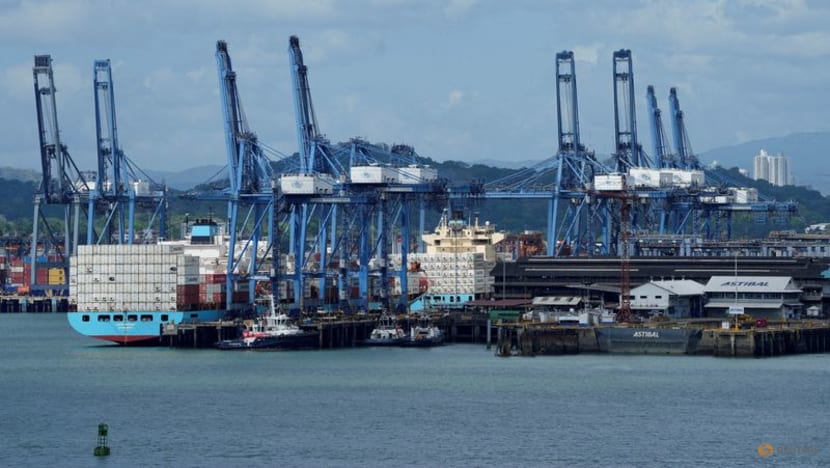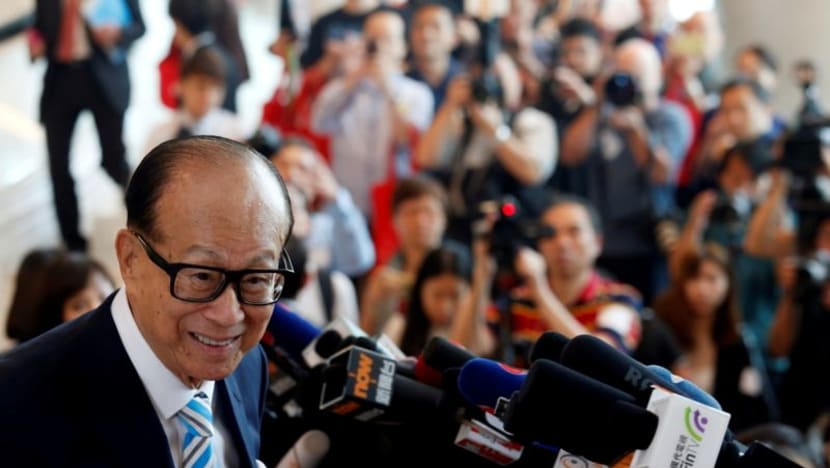Commentary: The Panama ports sale isn’t over, but China’s message to the Li family is clear
For two weeks, Hong Kong’s richest family, led by Li Ka-shing, held firm against Beijing over the planned sale of its Panama ports assets to BlackRock. That, in itself, is truly extraordinary, says former SCMP editor-in-chief Wang Xiangwei.


This audio is generated by an AI tool.
HONG KONG: The arm wrestling between Beijing and Hong Kong's richest family, led by Li Ka-shing, over the controversial sale of Panama Canal ports to BlackRock, an American investment giant, has surprisingly persisted longer than anticipated.
After two weeks of apparent silent defiance, the Li family seemed to relent on Friday (Mar 28) when local media, citing sources close to CK Hutchison, reported that the conglomerate founded by Mr Li would not proceed with the expected signing of a deal on Apr 2 to sell its two strategic ports at the Panama Canal. This development marks the latest flashpoint in the geopolitical rivalry between China and the United States.
On the same day, news emerged that Beijing would launch an antitrust probe into the sale, part of a US$23 billion deal to sell 43 ports across 23 countries to a consortium led by BlackRock. While Beijing may appear to have succeeded in delaying the sale, this does not necessarily mean the deal is dead.
The saga is expected to continue in the coming weeks or even months, potentially involving top leadership in both Beijing and Washington.

THE SHOWDOWN
CK Hutchison announced the deal on Mar 4. Less than 10 days later, Beijing-controlled newspaper, Ta Kung Pao, which is based in Hong Kong, published two sharply worded commentaries, urging the Li family to “stop being naïve and confused”. They criticised CK Hutchison of being unpatriotic and "selling out all Chinese people."
This marks the first time Beijing has publicly singled out Hong Kong's most prominent conglomerate for sharp criticism in the 27 years since the city's return to Chinese sovereignty, causing jitters and concerns about the politicisation of business in the local and broader business community.
Beijing's apparent loss of composure stems from not being informed of the deal in advance, amid US media reports that BlackRock chairman and CEO Larry Fink called US President Donald Trump to secure his blessing. Mr Trump hailed the deal as part of his administration's efforts to reclaim the Panama Canal.
Despite finding themselves in a political storm, the Li family has surprisingly kept its cool. In fact, the Mar 4 announcement, which stated that the sale was purely commercial in nature and unrelated to geopolitics concerning the Panama ports, remains CK Hutchison's only public statement to date.
Incensed by the silent treatment, Ta Kung Pao and another pro-Beijing Hong Kong newspaper Wen Wei Po have published at least 20 news stories and commentaries urging the Li family to respond to "public concerns" and halt the deal in the name of national interests and security.
The wrangling reached a climax on Mar 26 when Bloomberg cited sources reporting that CK Hutchison was believed to be moving forward with the deal as scheduled, despite Beijing's anger over the transaction.
In response, the Hong Kong and Macao Affairs Office again signalled its displeasure by reposting two articles published by Ta Kung Pao on Mar 26 and 27, criticising CK Hutchison for capitulating to US pressure and sacrificing national interests.
The following day, CK Hutchison finally relented amid reports that the State Administration for Market Regulation in Beijing would investigate the deal "to ensure fair competition" and "safeguard the public interest."
Until then, Beijing had hoped that intense media pressure would suffice to persuade the Li family to pause the deal, mindful of the potential impact on business confidence in Hong Kong and China if it intervened directly.
HIGH-LEVEL FRICTION
Ta Kung Pao's use of politically charged language in its commentaries has caused dismay among Hong Kong businessmen, with accusations of "aiding and abetting evil" reminiscent of wording frequently used in China's past political campaigns.
In the past, such pressure tactics would have quickly forced any Hong Kong company to capitulate. The Li family's ability to withstand the pressure for two weeks is truly extraordinary.
In another extraordinary development, Richard Li, the younger son of Li Ka-shing, seems to be distancing himself from CK Hutchison, which is controlled by his elder brother Victor Li.
The younger Li attended a high-profile forum in Beijing with senior Chinese officials and global executives on Mar 23 and 24, in his capacity as founder of Pacific Century Group.
On Mar 28, China's leading business media outlets, including Caixin, published stories stating that Pacific Century Group’s businesses operate independently. The articles particularly noted that Richard Li resigned from all positions at CK Hutchison in 2000.
What happens next?
The delay could mean that the main parties involved in the deal, including CK Hutchison and BlackRock, will have to renegotiate the terms to accommodate both Beijing's and Washington's concerns.
More likely, it will be a topic of discussion in an anticipated meeting between Chinese President Xi Jinping and Mr Trump, expected to take place in the coming months.
Wang Xiangwei is a former Editor-In-Chief of South China Morning Post. He now teaches journalism at Hong Kong Baptist University.


















